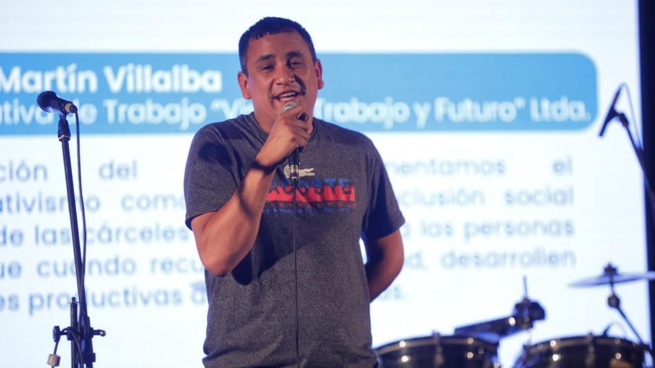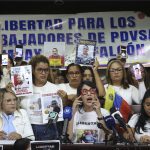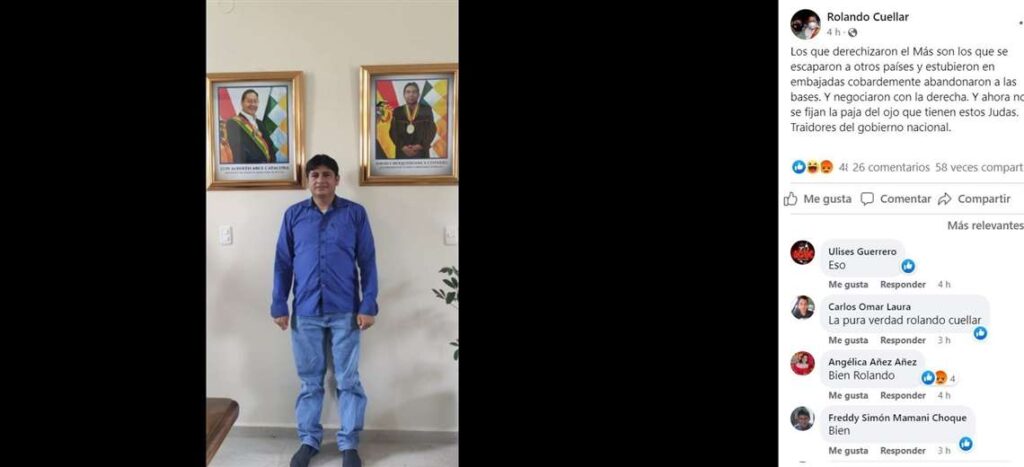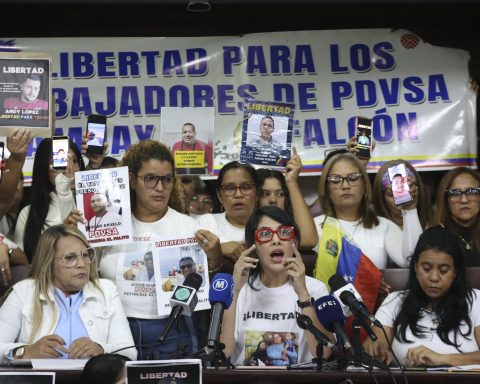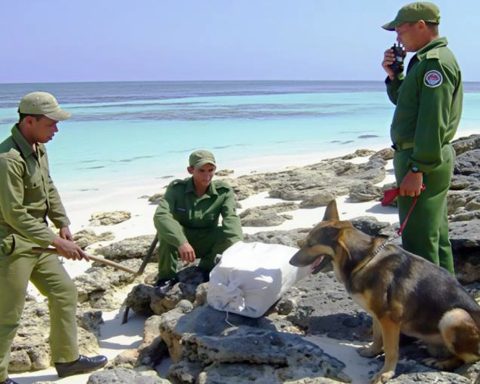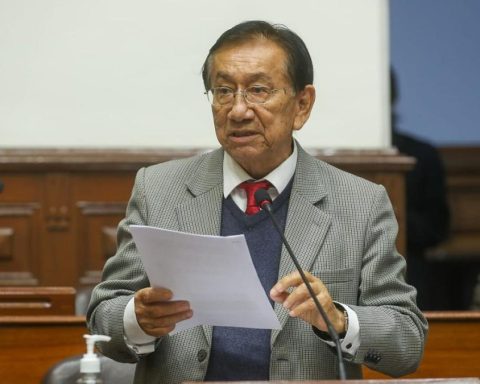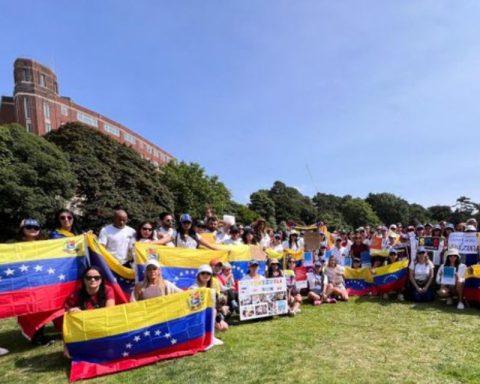The President of the National Federation of Argentine Worker Cooperatives (Funcat), Martin Villalbaassured that “cooperativism is the way out and growth for hundreds of workers from all over the country and the popular economy is job creation“, highlighting the task performed by that entity.
Funcat represents 66 cooperatives in different parts of the countryand almost 3,000 workers in construction, recycling, textiles, gastronomy, toys, elderly care, blacksmithing and carpentry, and animal feed.
Villalba is 38 years old and is from the town of Rafael Calzada, in the Buenos Aires district of Almirante Brown. During 10 years he was deprived of his freedom in different prisons in the province of Córdoba. After his years in prison, he finished his primary and secondary studies and he was trained in cooperativismand today he is the president of Funcat, an organization whose members received this week the visit and support of the finance ministers, Martin Guzmanand Social Development, John Zabaletaand leaders of social organizations.
-Télam: How was the Federation of Cooperatives born?
-Martín Villalba: The Federation was born a few years ago through a diploma that my Cooperativa Vision Trabajo y Futuro had with the National University of Lomas de Zamora, it was an agreement, to which we took the diploma in Social and Solidarity Economy, in Almirante Brown. And we always believed that it was a very good initiative because it did not exclude anyone and included everyone. From there we contacted other colleagues and cooperatives from the area began to participate and that is where the current National Federation of Argentine Labor Cooperatives (Funcat) began to be built.
-T: How many cooperatives and workers do you represent?
-V: Currently, there are 66 cooperatives and every day more workers continue to organize themselves in cooperatives. Today we are about 3,000 workers. For example, in the province of Santa Fe, where three cooperatives were created in the confinement context (prisons), for example in the Las Flores unit for men and in unit number 4 for women.
-T: Do you create cooperatives in prisons, with prisoners?
-V: Yes, in prisons. Within our federation we have an area called the Social Protection Area, where we work in different prisons, we train, we share our experience and we try to ensure that our male and female inmates, when they are released, come out with a job and can access a cooperative work, to earn a salary, to earn a living.

-T: A kind of social reintegration of prisoners for when they are released…
-V: Sure, that’s right. Social reintegration of prisoners in the different prisons. First by training them and after they are incorporated into the productive cooperatives.
-T: How many prisoners have been recovered through this initiative?
-V: I don’t know, I’m telling you the truth, we are a lot of cooperatives of liberated men and women who are not within our federation, who are in other organizations, but there are a lot of compañeros and compañeras who, thanks to this, never came back to steal, they never returned to a prison. That they never stole again, but it seems that this is not news… right? That is why we see cooperativism as the best tool for a model of social inclusion, which is the window through which one must look.
-T: In the Federation (Funcat), cooperatives come together, in what category?
-V: Cooperatives for recycling waste, construction, textiles, toys and food for dogs, cooperatives for blacksmithing, carpentry, puncture, cooperative schools, cooperative materials yard, gastronomy, caregivers for the elderly, among others.
-T: Why is this task not known in public opinion?
-V: The truth is that it would be very good for the people to know. The other day we shared an act with the ministers (Martín) Guzmán and (Juan) Zabaleta in Almirante Brown, I say that they left happy with what they found at the Funcat meeting and amazed. I believe that the popular economy is the window through which the economy of a country and its growth should also be seen. The Popular Economy is work, it is nothing else, those who say it is something else are wrong.
-T: What does the cooperative in which you work do?
-V: We are in Almirante Brown with a separate waste collection cooperative. All the nylon that is collected goes to an echo point, then goes to a pressurizer, presser and then becomes a pellet. These pellets are then converted into consortium bags, these consortium bags are sold through our subsidiaries in Santa Fe, Córdoba, Catamarca and Entre Ríos. These bags with work and cooperative labor are sold in different parts of the country, also in the Central Market, in the Mercado de Abasto de Córdoba, and with the generation of a lot of jobs. And, when that production of bags was sold, the profit is distributed among all the workers. It is not that a rogue or two takes it, it is distributed among all…

-T: How do you see the social situation in the country?
-V: Our country has been hit for a long time. We are going through a complicated situation, but I believe in the process that the Government is carrying out in State policies for the future. The national government has accompanied us in this process of organizing workers in cooperatives and we have to be grateful to the people who help us. For this reason, in the meeting that we had in front of the ministers, I said ‘thank you’ several times.
-T: What are you asking for?
-V: More investment, transformation and growth opportunity policies with job creation. You imagine -for example- that a trained kid gets out of jail after 20 years in prison and the next day he goes to work and you see the kid today and he’s happy and, besides, that kid never steals again. .
-T: That young man who comes out of jail with a job, is he happy today?
-V: But don’t have any doubts! The prisoner who gets out of jail with a job never steals again. He is happy because it changed his life, you trained him, you gave him tools for when he gets out of prison, you incorporated him into the labor field. He puts things together with his family, with good vibes, the kids are happy, they come to see their father where he works… Cooperativism changed my life. I was locked up for 10 years because I behaved very badly.
-T: Were you detained?
-V: I was in a confinement context for 10 years because I misbehaved when I was a boy and whoever misbehaves has to pay and I paid and today I don’t owe anyone anything. In those 10 years I finished elementary school, I finished high school, I continued my university career while in prison.
-T: And today, he is president of a Federation of Cooperatives, with many workers and that generates work.
-V: That’s right. If I can do it, why can’t others? Why can’t the thousands and thousands of prisoners make a path to reintegrate into society?
